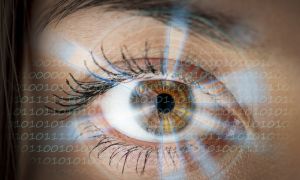Advertisement
There are a number of common signs that you may need glasses. They include the following:
- Frequent squinting: When you squint, you're doing so because you want to reduce the extra light entering the eye and reduce the size of the blurred image. It can signal that you're farsighted (seeing poorly close up) or nearsighted (seeing poorly far away).
- Eye fatigue or strain: If your eye pain goes on for more than a few days, you have eye pain with eye movements or if your eyes seem to get tired from regular activities like watching TV or reading, get it checked out.
- Frequent headaches: Getting frequent headaches may mean you have a vision problem. Headaches may be attributed to farsightedness or astigmatism. As your eyes strain to focus better, than can lead to headaches.
- Blurred vision: Blurred vision can signal farsightedness or nearsightedness. Adults may notice it when they read, drive or sit at the computer. Kids may notice it while they're reading, doing homework or at school.
- Seeing halos around light: Light can become scattered or blurry when your eyes can't focus light correctly. That's why you may see circles around light bulbs, car headlights and lights of varying sizes and shapes.
- Sitting close to the TV: You may be nearsighted if you sit close to the television. You're compensating for being unable to see from far away by moving closer to the object (in this case the television images).
- Eye rubbing: If you're rubbing your eyes, you may have eye fatigue or eye strain. Glasses can help.
- Reading with a book near your face or at arm's length: How you hold a book or a menu can reveal if you have vision problems. You may put it near your face if you're nearsighted. Or you might hold it at arm's length if you're farsighted.
- Losing your place or finger pointing while reading: If you lose your spot or skip lines when you read, you may have a vision problem.
- Closing or covering one eye to watch TV or read: You may be closing or covering the "bad" eye so it doesn't get in the way of your vision. That can signal that you have lazy eye or astigmatism. Or it can mean you have a cataract or double vision caused by strabismus.
- Difficulty seeing at night: Various factors may trigger your troubles seeing in the dark such as cataracts or taking certain medications that cause night vision issues. Glasses can help if the problem is nearsightedness.
Continue Learning about Eye and Vision
Important: This content reflects information from various individuals and organizations and may offer alternative or opposing points of view. It should not be used for medical advice, diagnosis or treatment. As always, you should consult with your healthcare provider about your specific health needs.



